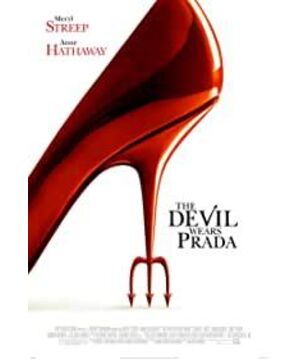Since the name and the related gossip indirectly or directly emphasize that the female editor Miranda in it is an allusion to the American editor of "Vogue" Anna Winter, I thought I would see a bitch hated by people, but this famous brand After watching the flying film, I found that it has not turned into a simple innuendo and a low-level personal attack.
It can really impress you, and it will resonate with people who are not interested in fashion industry scenes. In fact, it is the bitterness of a more general workplace struggle-continuous giving, continuous sacrifice for work Lose your personal life, sacrifice your competitors, and be sacrificed by stronger opponents or bosses at any time.
The trouble of the little assistant is that he encounters a boss who has a bad attitude and constantly has problems, but don’t think that her boss who is like a queen in the industry can live comfortably-her boss starts to think that her salary is too old. Too big, brewing to find cheaper new blood (and her nemesis) to replace it. The little assistant was upset, and it can be said that the old lady is not here. Throwing away the mobile phone and switching to a new career, the queen loses her throne, which means that it has become the laughing stock of the entire industry and the tabloid news. There is no place to die. . So you see, few people can avoid the terrible situation of being humiliated by their boss and denying the value of existence. Even your devil boss will have nightmares tailored for her (him).
Meryl Streep’s Miranda is an iconic character who gathers all the bad things of the boss, but "The Devil Wearing Prada" did not over-exaggerate and vilify her because of the distinctive characteristics of this character. The film is subtle. The ground controls the balance. She is so prosperous, but she is also very professional at the same time. I think the scene that best reflects the complexity of this character is the scene of choosing a belt: the little assistant who is a monk has a little knowledge of the fashion industry, and as the assistant to the editor of the most authoritative fashion magazine, he often wears casual clothes and goes to work. , Smiled disapprovingly when the boss was still picking samples.
Miranda taught her little assistant’s frivolity about her work. She took the color of the sweater on her partner as an example. Rushu Jiazhen combined the popularity of this color and the value it created in the fashion industry. She told the little assistant: "You think You are not influenced by trends, but you make your own choice. In fact, the sweater you wear was chosen for you by someone else, just like us." This sentence is not a trivial boast. Every year, the industry has the power A handful of people who have an absolute say decide on popular colors, styles, and themes. Then, Jackie Chan runs and produces each link in a coordinated manner, and dumps these people's decisions to every corner of people's lives. Miranda's words not only show her professionalism aptly, but also reveal the root of her strength.
Just a job. But the final job is not just work, it is temptation, status and power. It is like the Miranda wearing Prada, squeezing you while transforming you.
At first, I was reluctant to think that I was an outsider's assistant. Once I found out that playing Miranda could actually get the unpublished "Harry Potter", I also had to realize the benefits of being close to power.
She is so smart, by analogy, even though there are countless steps between her and Miranda, Miranda has already seen another self in her.
On the road to Miranda, the end seems like flowers are in full bloom, but only thorns along the way. The little assistant was not ambitious enough, and finally ran off, but in this world, there are many people who want to be Miranda.
View more about The Devil Wears Prada reviews











